FAQs
- You Are Here:Home
- FAQs
Thank you for your interest in becoming a Therapet Volunteer, you will find more information below about becoming a volunteer with your pet.
FAQs
Does the service operate throughout the UK?
No, it only operates in Scotland.
What is the Therapet Registration Process?
- Firstly, you should apply to the office for an information pack which will include a Therapet application form, two character reference forms, an animal assessment form and membership form along with useful information about the process including details of the responsibilities of Therapet Volunteers. You will be given contact details for your nearest CCST Area Representative’s.
- Next you should contact your Area Representative to arrange your pet’s assessment. If the assessment is satisfactory all the relevant forms should be sent to the office along with the relevant fees.
- The office will send you a form to complete for membership of the Protection of Vulnerable Groups Scheme (“PVG”) for regulated work with Protected Adults. If you are already a PVG member your membership will be updated to show that you are a volunteer with CCST for regulated work with Protected Adults.
- Once PVG membership/update is confirmed the office will complete your membership of CCST and your pet’s registration as a Therapet.
- It may take up to 8 weeks for your application to be processed.
What is the cost to become a Therapet Volunteer or a member of CCST?
- There is an annual membership fee of: £10 single / £15 joint / £5 Senior Citizen / £5 Under 16 / Corporate £20
- There is also a one-off payment for registering your pet as a Therapet of £5
- For insurance purposes, Therapet Volunteers must retain their membership.
Do all Therapets need to be pedigreed?
No, we accept Pedigrees or Cross-Breeds. What this means is, if you think your dog or cat might be what we are looking for, please enquire.
How old does my pet have to be to become a Therapet?
Your pet must be at least one year old before it can be assessed, but you can apply for your information pack from the office before it attains one year. There is no upper age limit. The only stipulation is that your pet is fit and healthy and is able to undertake the work of a visiting Therapet.
Can rescued or re-homed pets become Therapets?
Yes, but they must have been living with you for at least 6 months before you apply.
Do Therapets have to be vaccinated?
Yes, all of our Therapets must be fully vaccinated, wormed and protected against fleas in accordance with your own vet’s guidelines. Your pet’s vaccination certificate has to be seen/produced during the assessment process.
Who decides where I can visit?
- Your Area representative will find you a place to visit with your Therapet once your application has been processed, or you may know of somewhere local to you that you would like to visit.
- You can visit more than one place with your Therapet if you wish.
Do Therapets have to stay on a lead when visiting?
Yes at all times. This is to keep them safe. They also must be walked on a solid lead when visiting. Under no circumstances should you use an extendable lead when visiting.
How many Therapets can I visit with at the one time?
Only one Therapet with one volunteer when visiting is allowed. Remember the Therapets rely on the volunteers to keep them safe when visiting. If visiting children or people with support needs, it is strictly one Therapet and one volunteer.
Am I allowed to visit children right away with my Therapet?
No. Your Therapet must have been visiting adults continuously for one year before it can be considered for visiting with children. As a volunteer your PVG will have to be upgraded to include work with children. At the same time your Therapet would be reassessed by your Area Representative. Not all Therapets are suitable to work with children.
Could I be asked to visit with my Therapet in person’s home?
Yes, we call this one-to-one visiting. There must always be a third party present while this type of visiting in undertaken. This is to safeguard the volunteer while visiting. The third party would normally be a family member, close friend, social worker or case worker or someone similar. If no one is available to be present, then one-to-one visits are not permitted.
How often do I have to visit with your Therapet?
There is no laid down stipulation for this. Visits are arranged mutually with the place you are visiting. This can be weekly/fortnightly/monthly etc. However, when deciding the frequency some thought must be given to this voluntary commitment, not only from your point of view but that of your pet as well. Regular visiting is greatly appreciated by the people in any of the establishments we visit and it is important regular visits are maintained.
As a Canine Concern Scotland Trust volunteer do I have to buy branded clothing?
- No, but you must wear your Therapet Visitor badge and ID badge while on visits and Therapets should wear their lead flash. All these items are supplied to you with your Therapet registration pack.
- If you are going to take part in a PR event or appear in publicity event arranged by your Area Representative, you may be asked if you wish to wear branded clothing or that your Therapet wear a Therapet coat for the event. For you own personal use a range of sweat shirts, polo shirts and t-shirts are available to wear and for your Therapet there are coats and bandanas. These are available for you to purchase from the office.
Can I be a member of Canine Concern Scotland Trust, but not visit with my pet?
Yes, and many people do this. In doing so you would be supporting the work the Trust carries out throughout Scotland.
What do I get for being a member of Canine Concern Scotland Trust?
- The Trust will keep you informed of the work it carries out in Scotland. Normally this is done by sending out three bulletins during the year and by continually updating information on our website, Facebook and Twitter pages on social media.
- You will receive a membership card and a car sticker.
As a Therapet volunteer can I work with people who are afraid of dogs?
Yes. The Trust works alongside Psychologists and Clinicians who work in Child and Adolescent Mental Health Services (CAMHS) to help people with their dog phobias. This is normally through a GP referral to a local CAMHS unit and they contact CCST for assistance. Volunteers will be given guidance in how to undertake this type of work with their Therapet for CCST. We do not undertake this type of work in people own homes unless the professional is present.
How will my pet be assessed?
As part of the application process your dog or cat will be assessed by your Area Representative. The assessment checks that your dog or cat is suitable to take part in our visiting service and other activities in which Therapets may take part. We are looking for animals that are well socialised, under the volunteers control, show willingness to meet strangers and at the same time have a calm and gentle nature.
What happens during the assessment?
Dogs and Cats need to be able to:
- Walk calmly on a solid lead with buckle collar (no extension leads allowed), without excessive pulling and preferably without the use of head collar or harnesses and no check chains. The reason for this is that dogs need to be under the volunteers control at all times, this in turn helps to keep the Therapet safe. Cats need to be able to walk with a body harness with a solid lead attached.
- Accept being stroked and show willingness in having all parts of their body touched including head, ears, paws, tail by the assessor, as they can often be touched when visiting by the old or by the young.
- Take a treat gently without snatching. While Therapets are visiting it is very common for the people we visit to ask to give the Therapet a treat. So we need to know they can do this gently without causing alarm.
- React calmly to a sudden or loud noise. This is to ensure that if any sudden or unexpected noise happened in the venue where they were visiting the Therapet would not be alarmed. Settle down reasonably quickly in the assessor presence.
What will the assessor do?
- Ask if your pet is good in the presence of other dogs or cats. We need to know this as there may be occasions when you could meet another dog while visiting or a care home may have a residential cat.
- Check that the pet’s nails are trimmed Check that your pet’s vaccination certificate is up to date.
What should we be able to demonstrate during assessment?
- You have good control of your pet while talking in general with the assessor. This demonstrates to the assessor that you are able to talk to someone and at the same time your pet is content at your side and not demanding attention.
- that your pet will do as they are told by sitting on command.
- Your pet will be in a fit, clean and in a healthy condition for visiting anywhere. First impressions count and your Therapet must be all these things stated above. If you or your Therapet are not fit or healthy you must not visit.
- Your pet does not jump up.
- Your pet does not pull excessively when on its lead.
- Your pet does not back-off or shy-away.
- Your pet does not bark or growl unnecessarily.
- Your pet does not “mouth” the assessor’s hands or arms.
- Your pet does not lick the assessor
Assessors will fill out the Therapet Assessment Form which covers all of the items listed above.
Is it possible that my pet could fail the assessment?
Yes, sometimes pets are not suitable for registration as Therapets for one reason or another. If your pet fails its assessment the assessor will explain the reasons and may suggest that you re-apply in a few months-time or when its behaviour has improved
Where do Therapets visit?
We visit in care homes, hospitals, hospices, day centres, stroke units, brain injury units, in people’s homes, persons who require support needs, with people who have a phobia of dogs (through CAMHs units), forensic units and prisons. Anywhere that people meet or gather to socialise if appropriate.
Do Canine Concern Scotland Trust charge for any of these visits?
No. CCST does not charge for any of our work that our visiting Therapets take part in. But we are a Scottish based charity and would accept any donations that were offered in appreciation.
Are you Therapets insured for PLI?
Yes. All our Therapets while working are covered by CCST Public Liability Insurance.

Why Therapet?
"THERAPET is a beacon of compassion. Volunteering here has allowed me to witness the healing power of animals. It's an honour to be part of such a meaningful cause."
Danielle & Tillie
Therapet Volunteers
Thank you!
Your donations large or small help us on our way. The amazing things happen here are down to you!

